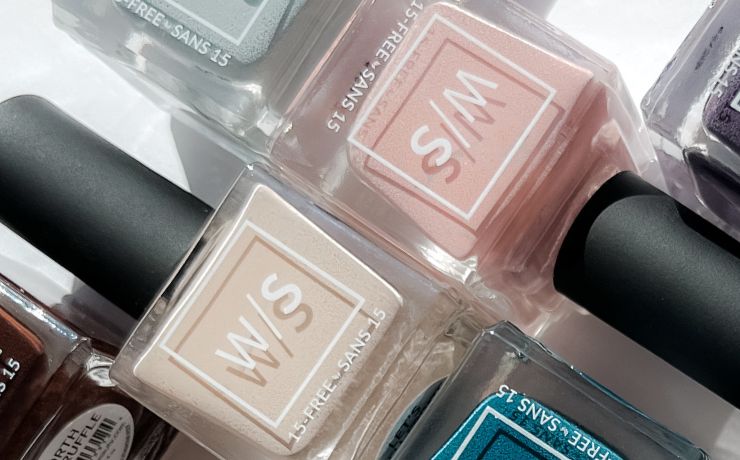withSimplicity | July 31, 2024
How to Stop Drying Out Your Skin

Dealing with flaking, itchy skin can be frustrating, especially when it interferes with everyday tasks. For some, it’s a seasonal issue, while for others, it affects their quality of life more often. Understanding the reasons behind it is the first step to creating an effective skin care routine for dry skin. Discover the common symptoms, causes and solutions for dull skin.
How to Tell if You Have Dry Skin
If you have dry skin, you may experience one or more of the following:
- Flaky, rough texture: The skin starts to flake off with insufficient moisture.
- Dehydration: Excessively dry skin has more noticeable fine lines.
- Cracks: Dry skin shrinks, causing cracks to form, while deeper cracks may even bleed.
- Itchiness: Dry skin may cause constant itching, making it more challenging to focus on everyday activities, including sleeping.
- Wrinkled: Skin becomes loose and dry with age, causing wrinkles to form.
- Peeling skin: It’s normal for skin to shed dead skin cells. However, people with dry skin experience excessive shedding, leading to peeling.
- Skin infections: Dry skin compromises the outer layer of the skin, allowing germs to enter and leading to a skin infection. Signs of infection include discoloration, swelling, yellow crusts and pus-filled areas.
8 Common Causes of Dry Skin
Skin dryness can happen to anyone, but it can be caused by various factors. Discover the major culprits behind dry skin.
Weather
The colder months can compromise your skin health, triggering eczema and dry skin. The cooler temperatures of fall and winter seasons have low ambient humidity, leading to less moisture in the air.
Once fall weather rolls in, you may notice unwanted dryness or irritation. This is caused by the lack of hydration as the air cools down. Turning the heating on at home removes moisture from the air, exacerbating dryness.
Using the Wrong Products
Just because a popular item is well-loved doesn’t mean it’s guaranteed to work on your skin. If your skin has dried out despite using a moisturizer, it’s a sign your current skin care regimen isn’t delivering your skin’s hydration needs. It may be time to switch to strict skin care for dry skin.
A certain product may also fail to solve your skin issues if it's expired. Most skin care products are safe to apply to the skin for six months to a year, depending on the formulation and the packaging.
Skin Conditions
You’re more likely to experience dry skin if you have a history of eczema or allergic contact dermatitis. It can also be an unfortunate result of genetics, such as allergic diseases in your family.
Water Temperature
Prolonged exposure to water — especially hot water — can damage skin barrier function. If you enjoy long, steamy showers at night, they might be the culprit behind your itchy and flaky skin. Bathing in hot temperatures can strip the skin of natural oils, so try lowering it to lukewarm to reduce dryness.
Aging
Your skin’s ability to retain moisture declines as you age. It stops producing lipids, causing dryness, itchiness and dermatitis. This is a common occurrence all people will experience at some point.
Smoking
You might have the ideal skin care products for dry skin, but if you smoke, you’ll still struggle with dryness. Smoking has been associated with health issues, such as heart disease, lung issues and premature skin aging. It can cause oxidative damage, leading to skin dryness. Smokers are also more susceptible to inflammatory skin diseases than non-smokers.
Excessive Face Washing
While washing your face is crucial to remove oil and dirt, doing it multiple times daily can cause dry skin. No matter your skin type, you only need to wash your face at least once a day using a gentle cleanser to avoid irritation.
Over-Exfoliation
According to Robert Finney, MD, FAAD — a board-certified cosmetic dermatologist — you’re overexfoliating if you feel a stinging or burning sensation when applying lotion to the face. This can also happen when you’re not using the right exfoliator for your skin type. For instance, people with sensitive skin should look for gentle chemical exfoliators instead of physical variants.
How to Prevent Dry Skin
- Use a Humidifier: Dry indoor air during winter can lead to flaky skin, cracked lips and even bloody noses. A humidifier can help balance humidity levels to reduce the risk of uncomfortable conditions. It’s ideal to keep the levels between 30% and 50% to prevent the risks of having too low or too high humidity.
- Don’t Buy Into Hype: Just because some skin care hacks and products work for others doesn’t guarantee they’ll be effective on your skin. Your favorite influencer might just be exaggerating the benefits of that popular dry skin product. In reality, skin care for dry skin is different for everyone — nothing is guaranteed to work for everyone.
- Check Ingredients Lists: Avoid skin care with fragrances and denatured alcohols that can trigger dehydration and affect skin barrier function. An ideal dry skin skin care routine should only include moisturizing ingredients, such as oils, hyaluronic acid and aloe vera.
Dry skin solutions from reputable brands pay off in the long run. High-quality items are formulated with a focus on safety, efficacy and optimal results. They are often developed by highly skilled professionals who understand the intricacies of skin biology and ingredients
The perfect skin care for dry skin isn’t complete without a quality moisturizer. It helps relieve discomfort and create a moisture barrier to prevent dehydration.
Our Face Jelly moisturizer is a lightweight product with a jelly-like consistency that helps hydrate and nourish skin without the greasy feeling. It contains manuka oil, ylang ylang and blue tansy oil, which help replenish your natural oils.
If you need something a little heavier, our Blue Dew Beauty Balm is ideal for dry skin. It contains nourishing oils — such as camellia oleifera seed oil — that help soothe and calm irritated skin, fight signs of aging and promote glowing complexion. - Exfoliate: Exfoliating dry skin is crucial, but you should only do it occasionally. Use a gentle exfoliator to help rejuvenate your skin. If you have sensitive skin, you can also use chemical exfoliators, such as products with glycolic acid. Incorporate them into your dry skin routine once a week, as overexfoliation can exacerbate dryness.
Many factors cause skin to dry out. Fortunately, there are also various ways to combat it. By following these tips, you can confidently build your skin care routine for dry skin.
If you need help building your dry skincare routine, reach out to us and we'll help!










Leave a comment
This site is protected by hCaptcha and the hCaptcha Privacy Policy and Terms of Service apply.